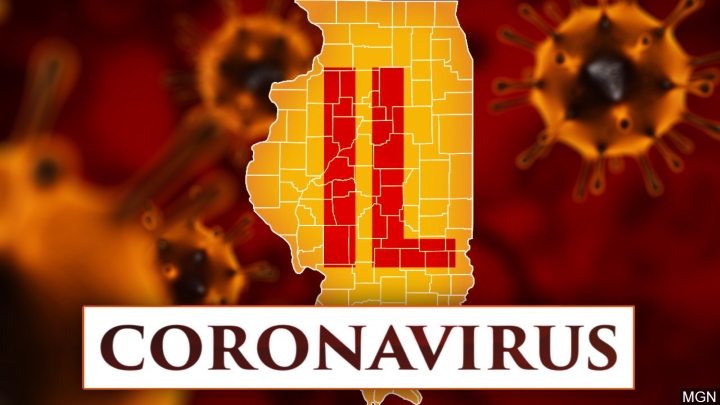 Like many business owners, physicians who own medical practices often require employees, including associate physicians, nurses, and other critical staff members, to sign non-competition and non-solicitation agreements to protect their practice, patients, and personnel. But the ability of medical practice owners to use non-competes and other restrictive covenants in employment contracts will soon be curtailed under a recently passed law that Gov. JB Pritzker is expected to sign.
Like many business owners, physicians who own medical practices often require employees, including associate physicians, nurses, and other critical staff members, to sign non-competition and non-solicitation agreements to protect their practice, patients, and personnel. But the ability of medical practice owners to use non-competes and other restrictive covenants in employment contracts will soon be curtailed under a recently passed law that Gov. JB Pritzker is expected to sign.
The legislature’s unanimous passage on May 31, 2021 of SB672 amending several provisions of the Illinois Freedom to Work Act dramatically transforms the landscape for these contractual provisions. If signed into law, the new restrictions on restrictive covenants will apply to all agreements dated on or after January 1, 2022.
For decades, courts have looked with a skeptical eye at non-competition and non-solicitation agreements, limiting as they do fundamental economic rights and the ability to make a living in one’s chosen occupation. Judges have not hesitated to hold such clauses unenforceable or modify them, especially if they are overly broad in time and geographic scope, are unsupported by sufficient consideration, or involve lower-wage workers.
The new amendments attempt to codify many aspects of courts’ analysis of restrictive covenants, establish clear limitations on when they can be used, and clarify the rights of employees when presented with such provisions.
Here is what physicians and medical practice owners need to know about the future of non-competition and non-solicitation agreements in Illinois:
Earnings-Based Limitations
Perhaps the most straightforward part of the new law is that it completely prohibits non-competes and non-solicitation agreements for employees below a specific income threshold. Specifically:
- Employers cannot enter into non-competition agreements with employees who have expected annual earnings of less than $75,000.
- Employers cannot enter into customer/employee non-solicitation agreements with employees who have expected annual earnings of less than $45,000.
These baseline income amounts will increase in 2027 and every five years after that.
“Legitimate Business Interest” and Consideration of the “Totality of Circumstances” Required When Evaluating Restrictive Employment Covenants
One of the fundamental principles that Illinois judges have used to evaluate the enforceability of restrictive covenants is to look at the facts and circumstances surrounding the specific agreement and determine whether the limitations are tailored to protect an employer’s “legitimate business interests.”
The recent amendments reflect this fact-specific approach, explicitly stating that “the same identical contract and restraint may be reasonable and valid under one set of circumstances and unreasonable and invalid under another set of circumstances.” The law sets forth several factors that a judge may consider when determining whether the employer has a legitimate business interest, including:
- The employee’s exposure to the employer’s patient relationships or other employees
- The near-permanence of patient relationships
- The employee’s acquisition, use, or knowledge of confidential information through the employee’s employment
- The time restrictions, the place restrictions, and the scope of the activity restrictions.
Adequate, Independent Consideration Required
All enforceable agreements must be supported by adequate consideration, including restrictive covenants. Under the amendments, “adequate consideration” means:
- The employee worked for the employer for at least two years after signing an agreement containing a covenant not to compete or a covenant not to solicit, or
- The employer otherwise provided consideration adequate to support an agreement not to compete or solicit, such as a period of employment plus additional financial or professional benefits.
Opportunity to Review
Employers will need to provide employees 14 days to review a non-competition/non-solicitation agreement and advise them in writing at the same time to consult an attorney before signing it.
Judges Can Revise Restrictive Covenants
The new law codifies the discretion judges have to reform overly broad or otherwise legally deficient covenants – a practice known as “blue penciling” – rather than holding the entire covenant unenforceable.
Enforcement Limitations Related to COVID-19
An otherwise valid non-compete is unenforceable if the employee was terminated, furloughed, or laid off as the result of the COVID-19 pandemic unless enforcement of the covenant includes compensation equivalent to the employee’s base salary at the time of termination for the period of enforcement minus compensation earned through subsequent employment during the period of enforcement.
As noted, the amendments will not be effective until January 1st of next year, so they will not apply to existing restrictive covenants. But medical practice owners who regularly use non-competition or non-solicitation agreements should consult with an experienced business attorney who can review such provisions in light of the new law.
If you are a medical practice owner and have questions about existing non-competes and non-solicitation agreements or how the new law affects your employment agreements going forward, please give me a call at 312-236-2433 or fill out my online form to arrange for your free initial consultation.

 With Illinois hospitals and healthcare workers overwhelmed on the front lines of the COVID-19 pandemic, and with freshly minted doctors and retired healthcare professionals being called into the fight, Gov. JB Pritzker signed an Executive Order providing them with immunity from civil liability for “rendering assistance” during the crisis.
With Illinois hospitals and healthcare workers overwhelmed on the front lines of the COVID-19 pandemic, and with freshly minted doctors and retired healthcare professionals being called into the fight, Gov. JB Pritzker signed an Executive Order providing them with immunity from civil liability for “rendering assistance” during the crisis.







